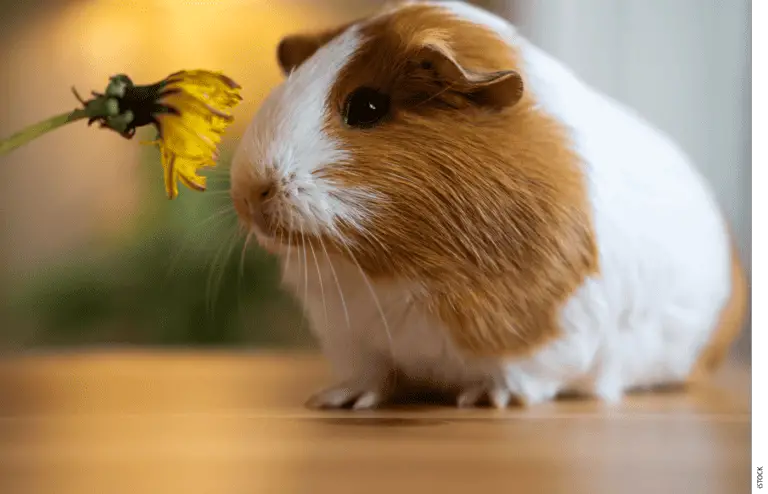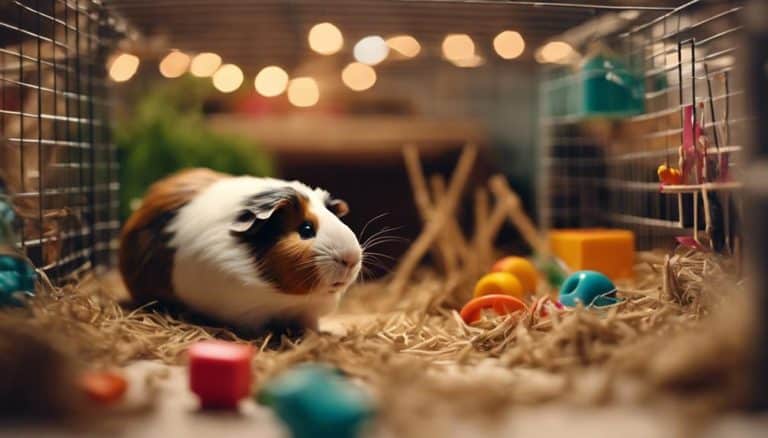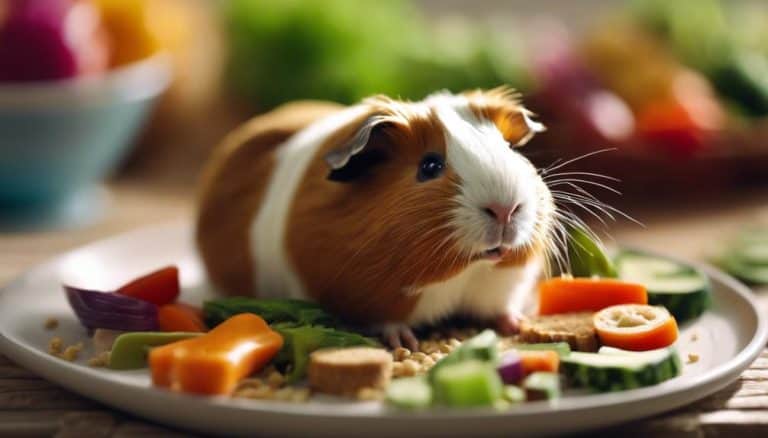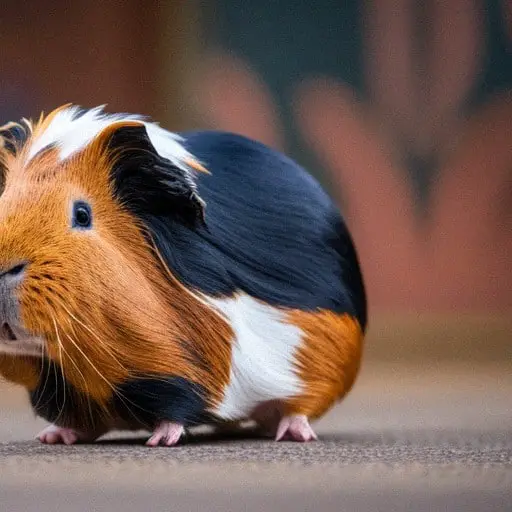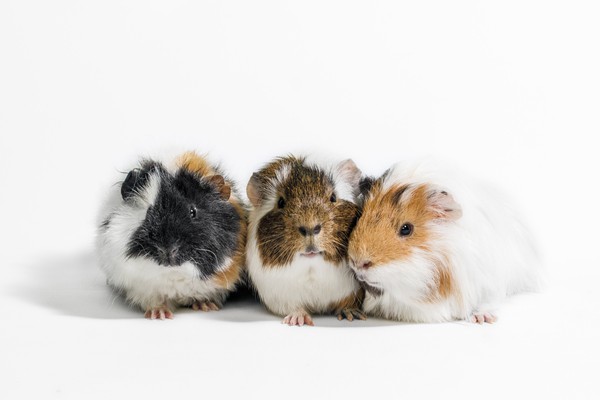How Long Do Guinea Pigs Live
As the golden hues of dusk settle, we often find ourselves watching our guinea pigs nibble quietly on their evening feast, a sight that never fails to warm our hearts. We’ve come to realize that these little bundles of fur are not just pets; they’re companions that weave their way into the fabric of our lives.
However, we can’t help but wonder how many sunsets we’ll share with them. We’ve learned that guinea pigs typically grace us with their presence for 6 to 8 years, although with exceptional care, some surpass this expectancy. Our collective experiences have shown us that their lifespan is influenced by a variety of factors, including genetics, diet, and environment.
It’s a journey of discovery, as we continually seek ways to enhance their well-being and potentially extend our time together.
Guinea Pig Average Lifespan
We’ve learned that the average lifespan of a guinea pig ranges from 5 to 8 years, with attentive care potentially extending this to around 10 years. This means committing to a guinea pig is a significant responsibility, as they’re with us for a good part of a decade, if not longer.
To ensure our furry friends live a full, healthy life, we must provide them with a diet rich in vitamin C and a spacious environment. It’s fascinating how these small creatures can be such long-term companions. By keeping a guinea pig well-fed, healthy, and happy, they often surpass the lower end of the average lifespan, thriving well into their golden years.
Let’s aim to celebrate many birthdays with our guinea pigs—here’s to aiming for double digits!
Factors Affecting Longevity
Our furry companions’ lifespans are greatly influenced by several key factors, including their genetics, diet, and the quality of care they receive.
Here’s what can make a difference:
- Genetics: Just like us, their inherited traits can predispose them to certain health problems or grant them more resilience.
- Diet: A balanced intake of vitamin C and a steady supply of grass hay are critical for their physical well-being.
- Care Quality: Attentiveness to signs of aging and ensuring mental and physical stimulation can significantly prolong their lives.
We’ve seen that focusing on these areas helps our guinea pigs not just survive but thrive. By understanding and catering to their needs, we can enjoy the delightful company of our pets for as long as possible.
Care Essentials for Health
To ensure our guinea pigs lead healthy, long lives, we must prioritize their dietary, environmental, and medical needs.
A balanced diet including fresh fruits and vegetables, particularly those rich in vitamin C, is crucial to their health and can extend their lifespan.
We’ve found that providing a spacious cage allows for necessary exercise and exploration, which plays a role in their overall well-being.
Furthermore, regular veterinary check-ups facilitate the early detection of age-related health issues. By monitoring signs like arthritis, weight loss, and reduced activity, we can address problems promptly.
We’re committed to researching and supplying appropriate food and greens, while maintaining a comfortable and stress-free living environment, to promote our guinea pigs’ longevity.
Dietary Impact on Lifespan
Continuing from our previous discussion on care essentials, we’ll now explore how a guinea pig’s diet directly influences their lifespan.
It’s been well-documented that the dietary impact on lifespan is significant for guinea pigs. A balanced and nutritious diet is paramount for these little creatures to live longer, healthier lives.
Here’s what we need to include in their diet:
- Vitamin C-rich foods: Unlike humans, guinea pigs can’t produce vitamin C, so it’s crucial to include high-vitamin C foods to prevent scurvy.
- High-fiber Hay: The bulk of their diet should be fibrous hay, which is essential for digestive health.
- Fresh Greens: A variety of fresh greens daily provides necessary nutrients and keeps meals interesting.
Ensuring these dietary staples will help our guinea pigs live a long, vibrant life.
How long do guinea pigs live? With the right diet, they can certainly reach the upper end of their lifespan potential.
Recognizing Aging Signs
As our guinea pigs enter their golden years, we’ll notice certain changes that signal they’re aging. Thickened, curled nails, and signs of joint swelling or arthritis become more apparent, requiring us to pay closer attention to their comfort.
Additionally, changes in weight and a noticeable decrease in their activity and energy levels will indicate it’s time for us to adjust their care routine.
Thickened, Curled Nails
We’ve observed that many of our guinea pigs develop thicker, curled nails as a clear sign of their advancing age. This is particularly common in guinea pigs that are considered seniors.
Here’s what we’ve learned about managing this age-related change:
- Frequent Trimming: Senior guinea pigs need a lot more nail care. Regular trimming can prevent discomfort and mobility issues.
- Gentle Handling: As they show signs of aging, it’s important to handle their delicate paws with extra care to avoid injury.
- Veterinary Check-ups: Sometimes, thickened nails can indicate underlying health issues. Regular vet visits are crucial for early detection and management.
Joint Swelling, Arthritis
Joint swelling in our guinea pigs often signals the onset of arthritis, a common ailment as they age. Arthritis can manifest through observable changes like joint swelling and a decrease in their usual activity levels. Recognizing arthritis in older guinea pigs allows us to seek timely veterinary care and possibly make adjustments to their living space. This can include softer bedding to ease their discomfort.
As our furry friends grow older, it’s not uncommon for us to notice that they mightn’t be as sprightly as they once were. We’ve got to keep a close eye on these signs so we can make their golden years more comfortable. It’s vital for us to address these age-related issues to help ensure our guinea pigs continue to live a happy life, even as they grow older.
Weight Loss Patterns
In addition to joint swelling and reduced mobility, we’ll often notice weight loss in our guinea pigs as a clear sign of aging. This can be concerning, as we want our furry friends to live long and healthy lives. Monitoring their weight is crucial, as sudden changes may indicate underlying health conditions.
Here are a few patterns we keep an eye on:
- Consistent Decline: A steady decrease in weight over time is a natural part of the aging process.
- Sudden Weight Loss: Abrupt changes could signal a health problem and should prompt a vet visit.
- Less Activity: With age, guinea pigs often become less active, which can contribute to weight loss.
Spotting these signs early helps us address any issues and ensure our guinea pigs age gracefully.
Activity, Energy Decrease
As guinea pigs age, we often notice a marked decrease in their activity and energy levels, signaling the onset of their senior years. It’s a stark contrast to young guinea pigs, who typically have abundant energy and frequently run around their cage with enthusiasm.
As the pigs age, their zestful sprints turn into leisurely strolls, and their playful antics may become less frequent. This energy decrease isn’t necessarily a cause for alarm, but it does mean we need to be more mindful of their needs for comfortable resting spaces and perhaps adjust their environment to cater to their changing mobility.
Common Health Issues
As we consider the lifespan of guinea pigs, we can’t ignore the common health issues that may arise.
Respiratory infections, dental problems, and scurvy due to vitamin C deficiency are just a few ailments that can affect their well-being. Additionally, parasitic infestations and obesity concerns must be taken into account when caring for these small pets.
Respiratory Infections
We must be mindful that respiratory infections are among the most common health concerns impacting the longevity of guinea pigs. To ensure our guinea pigs live long, happy, and healthy lives, we need to recognize and address these health conditions promptly.
Here are three critical steps to follow:
- Maintain Adequate Ventilation: Keep their living space well-ventilated to prevent the buildup of ammonia and other harmful substances that can trigger respiratory infections.
- Provide a Stress-Free Environment: Stress can weaken their immune system, making them more susceptible to infections.
- Ensure Proper Nutrition: A balanced diet, rich in vitamin C, supports a robust immune system, helping to fend off respiratory infections and other health issues.
Dental Problems
In addressing the longevity of guinea pigs, it’s crucial to consider dental problems, a common health issue that can significantly affect their lifespan. These adorable critters need constant access to chew toys and a diet rich in roughage to combat their continuously growing teeth. If neglected, overgrown teeth can lead to difficulty eating and subsequent weight loss, which plays a significant role in reducing their quality of life and shortening their lifespan.
We must ensure they receive regular veterinary check-ups to monitor and manage any dental issues. By understanding the importance of dental care, we’re better equipped to help our guinea pigs thrive and possibly extend their lives beyond the typical expectancy.
Scurvy Risk
Among the health issues that can significantly impact the lifespan of guinea pigs, scurvy due to vitamin C deficiency is one we must vigilantly guard against. This scurvy risk underscores the critical role of vitamin C in their diet.
To ensure our guinea pigs live long and healthy lives, we’re mindful of:
- Dietary Needs: Providing a balanced diet rich in vitamin C, crucial for preventing scurvy.
- Recognizing Symptoms: Staying alert for signs like lethargy, swollen joints, and rough hair.
- Preventative Care: Regular veterinary check-ups to address and prevent certain health conditions, including scurvy.
Parasitic Infestations
Understanding the importance of prevention, we’ll now explore how parasitic infestations are a common health issue that can shorten the lifespan of guinea pigs. To help our guinea pigs live long and healthy lives, it’s crucial to address these infestations promptly.
Parasites can wreak havoc on a guinea pig’s health, causing discomfort and potentially serious complications.
Guinea pigs need a clean, well-ventilated living space to reduce the risk of parasitic infestations. Regular veterinary check-ups are vital in spotting and treating any issues early on.
Ensuring a balanced diet and good hygiene practices can also help maintain the lifespan of a guinea pig.
Obesity Concerns
Addressing obesity concerns is crucial as we aim to enhance the health and extend the lifespan of our guinea pigs. When we discuss how long guinea pigs live, we must consider their potential lifespan and the factors that may shorten it. One significant issue is obesity, which can lead to health complications, ultimately affecting their ability to live a long and healthy life.
To give our guinea pigs the best chance at a long life, we should:
- Ensure a balanced diet with limited starchy foods to prevent weight gain.
- Provide ample space and opportunities for exercise to maintain a healthy weight.
- Schedule regular veterinary check-ups to monitor and manage obesity concerns effectively.
Maximizing Lifespan Potential
We can significantly extend the lives of our guinea pigs by ensuring they receive comprehensive care that addresses all aspects of their health and well-being. To make sure our guinea pigs live long and fulfilling lives, we need to focus on maximizing lifespan potential.
This includes maintaining a clean cage to ward off disease, providing regular companionship for mental health, and grooming long-haired breeds to prevent matting.
It’s also crucial to seek specialized care from vets who understand small animals. The oldest known guinea pigs have reached their impressive ages thanks to such dedicated attention.
Conclusion
We’ve discovered that our guinea pigs’ lifespans are a reflection of our dedication to their well-being. By providing proper care, balanced diets, and attentive love, we can positively influence their longevity.
As we recognize the signs of aging and address common health issues, we’re learning to maximize their lifespan potential.
Together, we celebrate every moment with our furry companions, cherishing the joy they bring into our lives for as long as we’re fortunate to have them.


